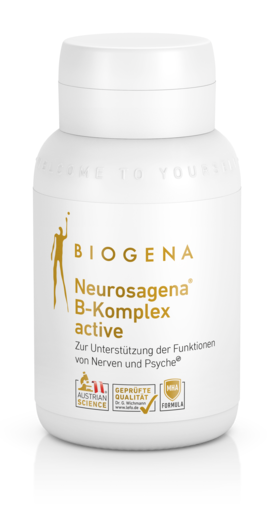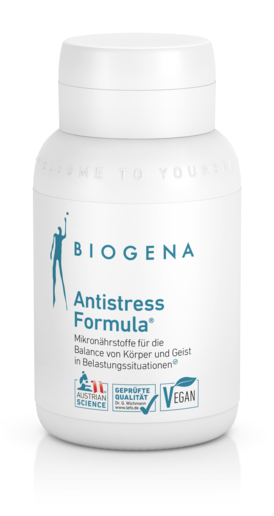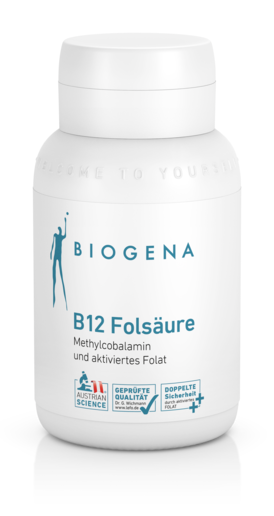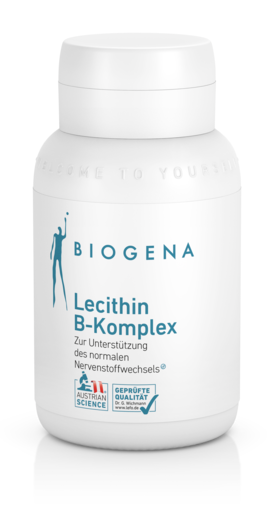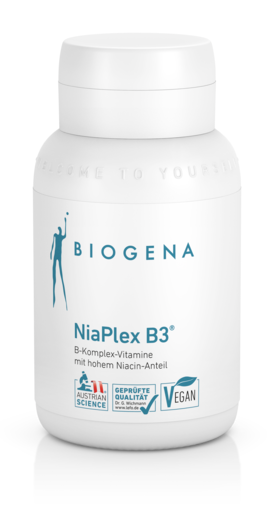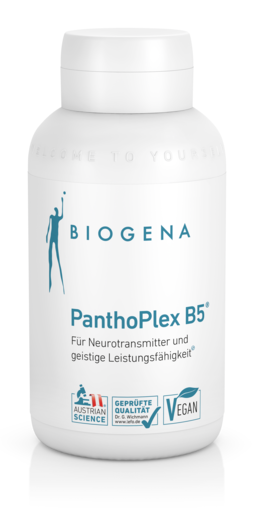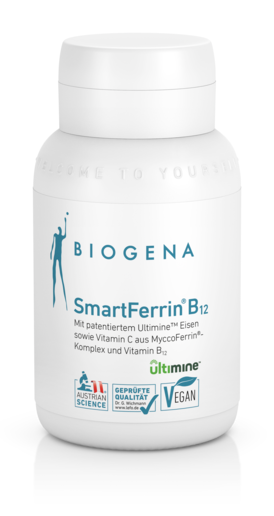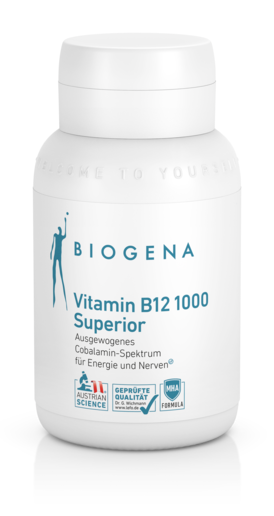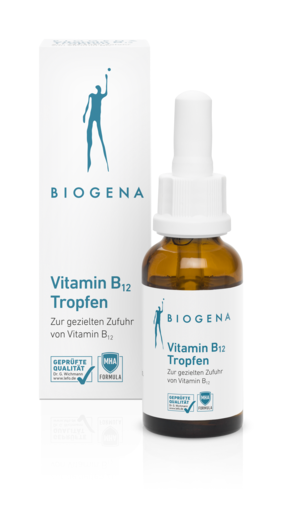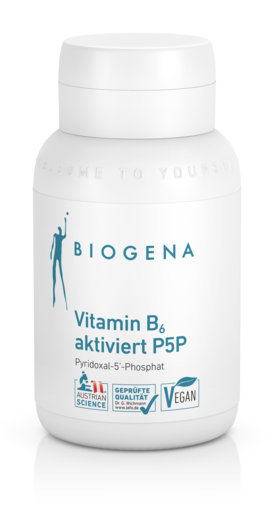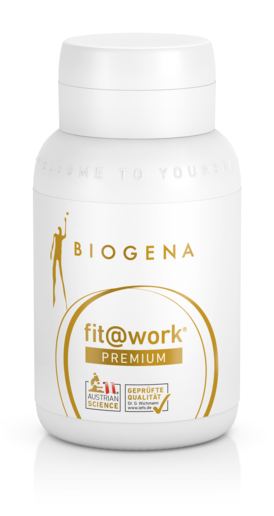Vitamin B
The eight members of the vitamin B group are stimulating vital substances. The body needs them to initiate many processes and maintain functions that are responsible for vitality, well-being and inner drive.



Vitamin B - hard-working multi-talents
Eight numbered group members – with gaps in the list
There is no one “vitamin B” because “vitamin B” is not a solo vitamin, but a group of eight water-soluble vitamins. They are water-soluble, which results in the disadvantage that they cannot be stored (or only to a very limited extent) and must therefore be available regularly. The advantage compared to fat-soluble vitamins that can be stored, however, is that an overdose is impossible. The B vitamins are numbered in ascending order – but there are gaps. There were once substances on the list which were later looked at again about their vitamin characteristics and subsequently removed.
Complex tasks and diverse “work areas”
The tasks that B vitamins have to master in the body are complex and diverse. The following “profiles” of the individual group members therefore only take into account their most obvious characteristics and are not complete.
Vitamin B complex:
- Vitamin B1 (thiamine)
- Vitamin B2 (riboflavin)
- Vitamin B3 (nicotinic acid)
- Vitamin B5 (pantothenic acid)
- Vitamin B6 (pyridoxine, pyridoxamine, pyridoxal)
- Vitamin B7 (biotin)
- Vitamin B9 (folic acid)
- Vitamin B12 – (cobalamin)
Vitamin B1 (thiamine) – strengthens the nerves
Vitamin B1 is occasionally and in popular scientific terms also called the “mood vitamin”. In fact, thiamine is significantly involved in carbohydrate metabolism and energy production, i.e. the provision of sugar. In turn, this is needed in large quantities by the heart muscle and the brain to keep them in good condition and to keep the memory fit. Vitamin B1 is also important for the conduction of stimuli in the nervous system and for the metabolism of neurotransmitters.
Vitamin B2 (riboflavin) – reduces fatigue symptoms
Riboflavin supports the metabolism of carbohydrates, amino acids and fatty acids and takes on strategic tasks in the formation of other vitamins such as vitamin B3 and B6, folic acid and vitamin K. It helps protect cells from oxidative stress and helps to form healthy hair and nails. Vitamin B2 reduces symptoms of fatigue and exhaustion.
Vitamin B3 (niacin) – promotes regeneration
Niacin is needed for energy generation, cell formation and muscle regeneration. Vitamin B3 is also required for the development of various neurotransmitters in the brain (especially serotonin) and promotes the ability to remember and concentrate.
Vitamin B5 (pantothenic acid) – prevents tenseness
Vitamin B5 is a protagonist in the entire energy metabolism. It is found as an enzyme component in all cells and is therefore involved in a variety of chemical reactions. Pantothenic acid helps in the synthesis of vitamin D and some neurotransmitters. It promotes mental performance and reduces exhaustion as a result of fatigue.
Vitamin B6 (pyridoxine) – stabilises the immune system
Vitamin B6 plays an important role in many protein and fat metabolism processes, as does the formation of nerve strands and the formation of the red blood pigment haemoglobin, which in turn is responsible for the transport of oxygen to the cells. Pyridoxine supports the formation of messenger substances for nerve metabolism and strengthens the immune system.
Vitamin B7 (biotin) – cares for the skin and hair
When Vitamin B7 was discovered in 1898, it was first called Vitamin H. The term is still used occasionally today because it fits the skin and hair so beautifully – the two “fields of work” in which biotin demonstrably provides outstanding performance. Vitamin B7 also controls enzyme functions in protein and lipid metabolism, thereby promoting the proper functioning of the nervous system.
Vitamin B9 (folic acid, folate) – supports cell division
Vitamin B9 may be referred to as the cell vitamin, as it is important for almost all cell divisions and growth processes. Pregnant women therefore require a lot of folic acid. Together with vitamin B12 and vitamin B6, folic acid also facilitates the breakdown of the harmful amino acid homocysteine and its conversion to methionine respectively.
Vitamin B12 (cobalamin) – promotes well-being
Vitamin B12 is the only B vitamin member that can be stored in the body. It affects the formation and maturation of red blood cells and the structure of certain nerve cells. In addition, it is something like an “activator” for folic acid. Vitamin B12 also has a major influence on subjective well-being and emotional stability.
Non-specific symptoms of vitamin B deficiency
Due to the complex tasks that B vitamins perform in the body, it is extremely difficult to diagnose a specific vitamin deficiency clearly. Non-specific symptoms include exhaustion and fatigue despite sufficient sleep, lack of concentration, possibly listlessness and nerve disorders. Unbalanced diets, but also an increased need for special performance requirements and/or physical activity, can promote lack of supply.
B vitamins: Valuable vital substances for a vital daily life
Without the active octet from the B vitamin group (vitamin B complex), you tend to feel more tense and exhausted. You may also notice occasional irritability which alternates with inexplicable moods. B vitamins are energy building blocks that strengthen the nerves, the brain and the circulation and allow vitality and resilience to return to everyday life. They counteract symptoms of fatigue and nourish the skin and hair with important nutrients. For a radiant appearance and a positive attitude towards life.



